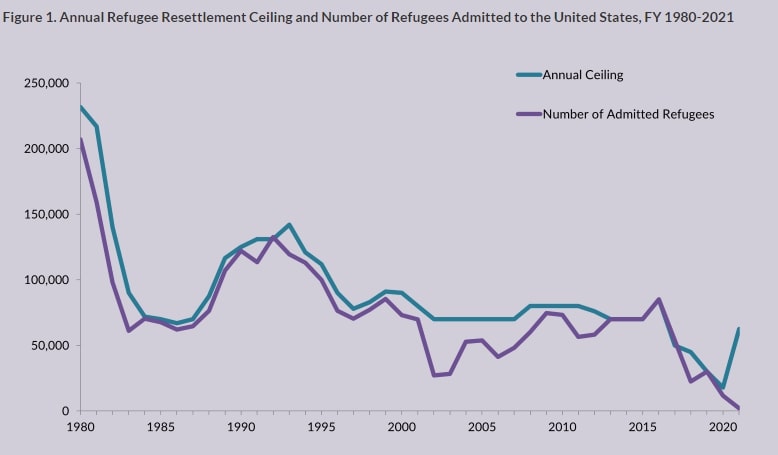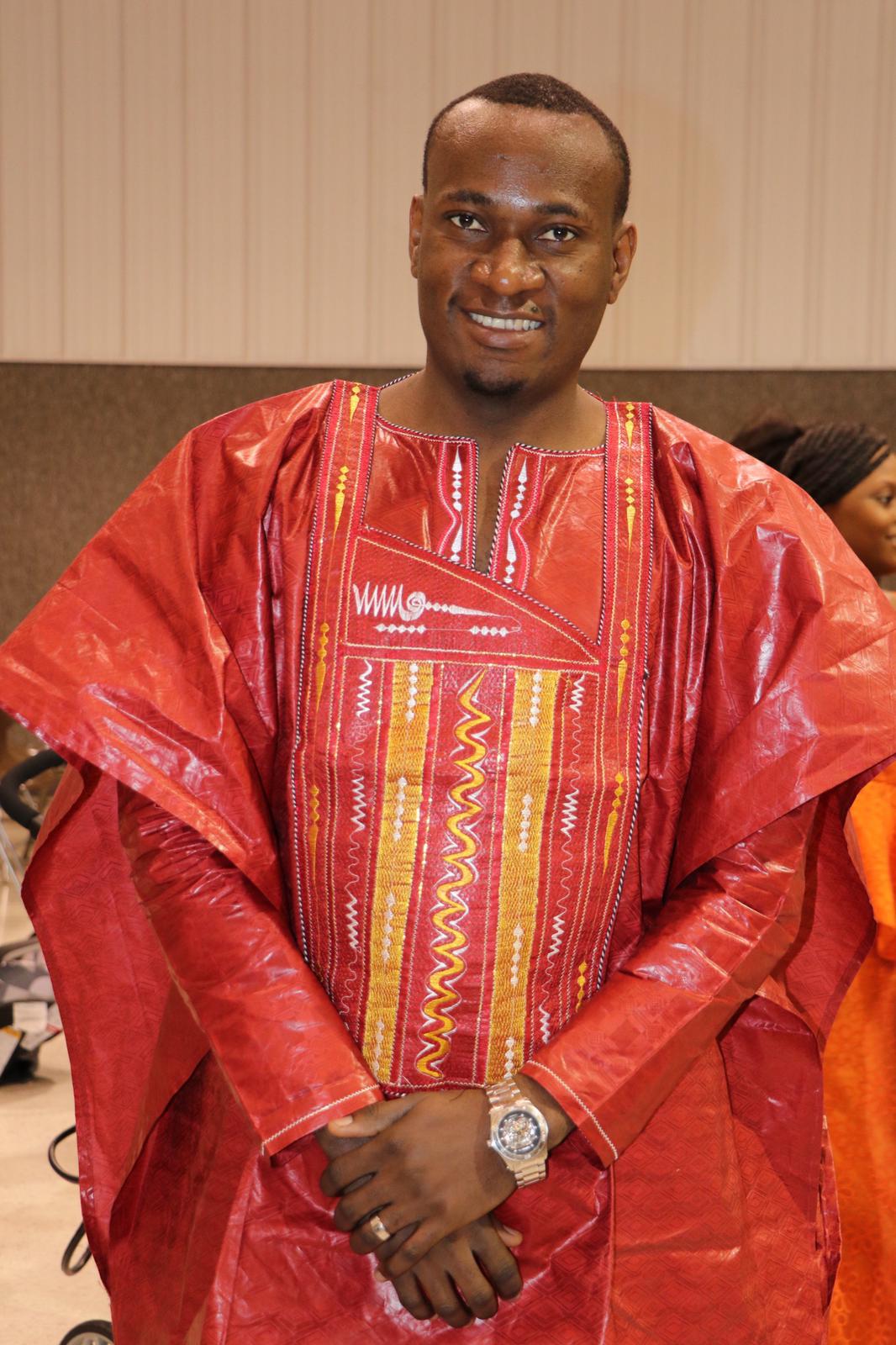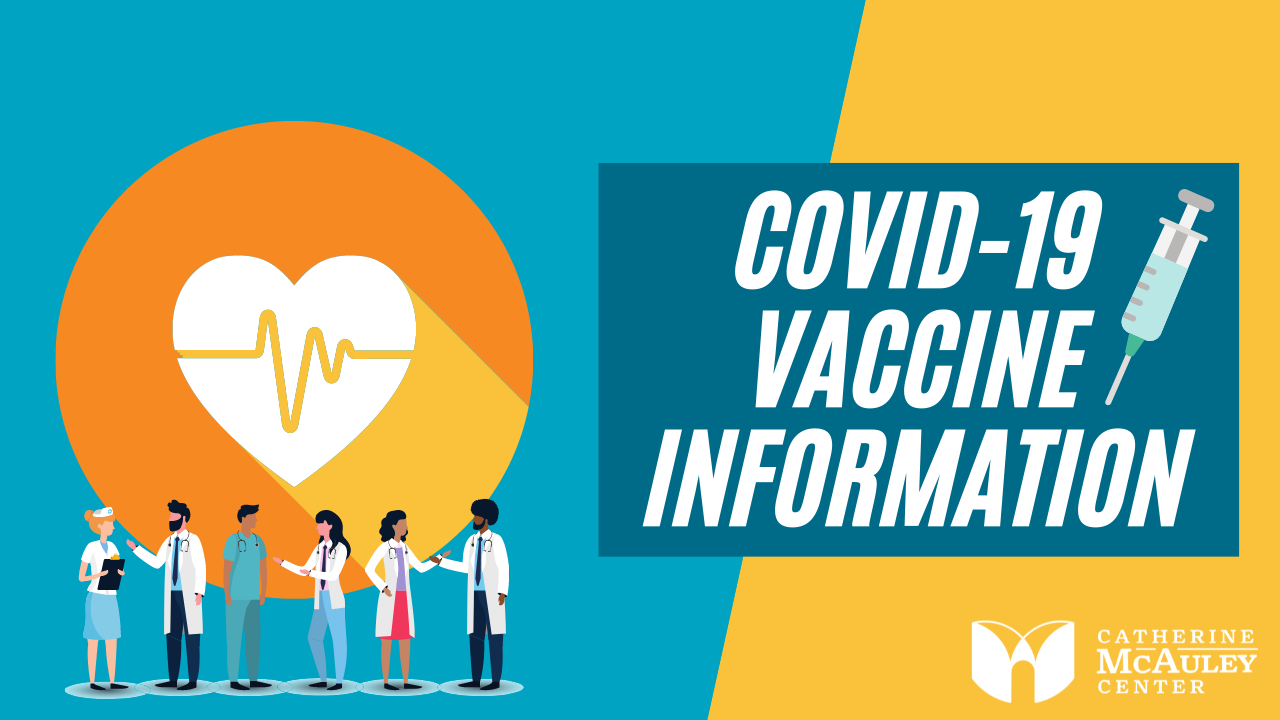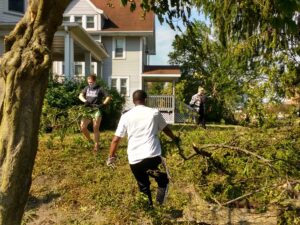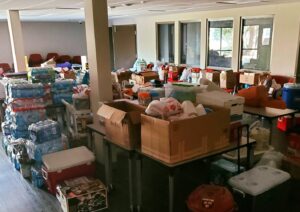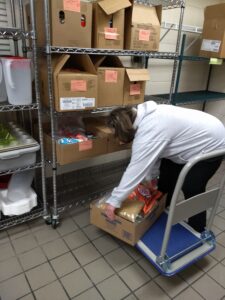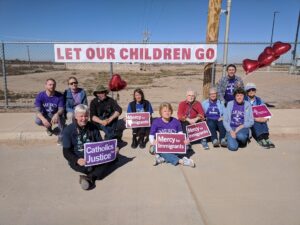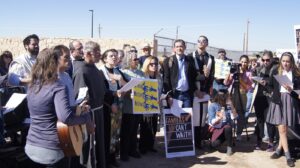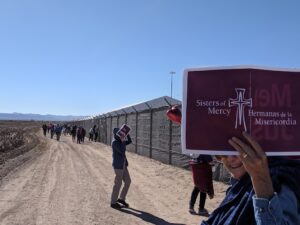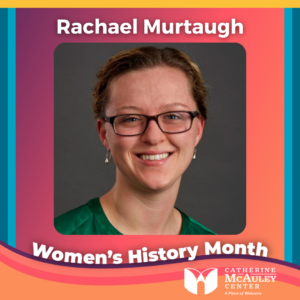
This Women’s History Month, CMC would like to highlight the stories of women in our community doing work in the areas of the Sisters of Mercy Critical Concerns. This week, CMC is focusing on the critical concern of earth. We reached out to Rachael Murtaugh, Director of Sustainability at Mount Mercy University, to dive deep into issues of sustainability, environmental justice, and local efforts to take care of our planet.
What is your role at Mount Mercy University, and how does your work relate to the critical concern of Earth?
I am Mount Mercy University’s Director of Sustainability and Stewardship, so that’s really just focusing on that critical concern and care of the earth. We do a lot of work with the curriculum at Mount Mercy, getting care of the earth linked with a lot of our classes, as well as sustainability as a whole. Sometimes when people think about sustainability, they go to recycling or green energy and that’s kind of where the conversation stops. We really look at sustainability from a holistic view. You really can consider all 5 of the critical concerns under that umbrella of sustainability because we look at it through the lens of the United Nations’ 17 sustainable development goals, which include earth topics like: climate change, life on land, life below water, clean water, and sanitation. But it also includes social justice issues like poverty, hunger, gender equality, peace and justice, sustainable city, economics, and more. There is a lot of education that we do on our campus showing that. one of my current goals has been helping students understand that no matter their major, their background, their interests, they have a role in sustainability and as they leave college and go on to their careers. Their career is going to have an impact on one or more of these goals and they have the choice of whether they are going to help move these goals forward or whether they are going to contribute to negative impacts. It’s helping people understand that everyone has a role and a stake in sustainability — and our earth, for that matter.
How does the critical concern of earth and sustainability resonate with you or impact you personally?
I’ve grown up appreciating, enjoying, and being out in our natural world. I grew up in a strong, faith-based family that spent as much time as possible outside. My dad often went fishing and hunting. Even before I could walk we were out in the woods learning about the various plants and animals. My dad is also an avid arrowhead hunter, so connecting the current land with the history of people that were historically there… has helped develop this ingrained love of the natural world. As I got into college, learning more about the fragility of our systems and the fragility of this planet and how much we were having an impact helped me see that I needed to have a career that helped educate and helped people realize that we have a choice in what legacy we leave on this earth. That’s been my goal for my current career and wherever my career leads me.
Tell me a little bit about your perspective on the impact that non-sustainable practices have had on indigenous communities/first nation people.
I have always been really interested in Native American history, and my dad was always intentional in educating me about which indigenous tribes were on the land we were exploring. I’ve noticed more and more frequently this idea of land acknowledgment and not sugarcoating the past. The atrocities that happened in the past are connected to our current day. We can’t go back and change the past, but we can acknowledge what happened and begin to respect that history and own that history. That conversation has been happening a lot more recently at higher education institutions. Oftentimes when I am having these conversations, we are looking at it from the scope of the concept of sustainability and where it comes from. It is so interesting because the word and idea (of sustainability) is a very western term. For many cultures, and first people/first nation cultures, they didn’t need to think about it because it was ingrained into their way of life. It was only until we started to be unsustainable and impacting our environment to such a degree that we had to name this concept in order for us to make a shift. For many cultures, that shift doesn’t have to happen. So, it’s interesting to have those conversations and talk about why we have to talk about these things because for so long we were not living by those principles. I’ve also noticed more and more classes at Mount Mercy wanting to include native voices and perceptions and I think that’s really exciting.
Looking at things from a gender lens, what is your experience like as a woman in your field and how are women specifically impacted by issues relating to care of the earth?
There are so many things we could talk about. My educational background is in conservation biology and ecology, that kind of field. Although the field is changing, it is still a very male-dominated field. That can be detrimental, for sure. I have definitely had opportunities impacted by the fact that I was a woman. At one point, it was deemed an inconvenience and uncomfortable to be working with an all-male team in a remote setting. And so, there are definitely still barriers for women in this field, but you are seeing more and more of that start to change, which is exciting. You are seeing more women and girls being encouraged to take STEM and STEAM courses, women are getting into all of these different fields which is what we need to do because when we have a diversity of people in any field means that we are going to have a diversity in ideas and that means that we are going to have better ideas overall, so I think that is really exciting.
When it comes to sustainability and specifically climate change/environmental stewardship, women have a unique potential for impact, and also a unique potential for being impacted. I think a great example a lot of times in our culture and other cultures, women are seen as stewards of resources. Whether it is the care of the home, or tending to the land in agriculture/gathering, women are often seen as caretakers/caregivers. More and more I am very happy to say that that role is being shared in cultures, but there is kind of this ingrained cultural view of women. So, on one hand, women have this unique opportunity to become better stewards of environmental resources, and to be a voice for that stewardship, and to make changes and educate their community. On the other hand, as we continue through climate change and begin to deal with more and more of its impact, women are at a greater risk of being harmed by resource shortages like water and food. Women are often more likely to be victimized if they are refugees, like climate refugees fleeing a climate-related disaster. Women and girls who need to travel a distance to get water, or firewood — as those resources become more scarce— may have to travel further. Sometimes, girls will be pulled out of school to help their mothers to obtain resources. Even just traveling long distances puts them at a greater risk for sexual violence and physical violence. According to the UN, especially in countries where women do not have equal access to economic benefits, they are much more likely to be severely injured or even die than their male counterparts due to climate-related disasters; this is for a slew of reasons. I am happy to see that there is a rise in gender equality in these fields and in climate action, and I think that for a lot of cultures, women have a unique opportunity to have a positive impact… while they also have a greater risk if we don’t take action.
What is the local community doing to help save the earth and implement sustainable practices? What should we be asking our community to do to help the planet?
Let’s start small and then expand. At Mount Mercy, we have been doing a lot of energy conversions. Our facilities crew have, whenever possible, replaced old systems with high-efficiency systems. We’ve been switching to LED lights. We’ve done two huge lighting projects that together are saving over 149 tons of carbon every year just in switching out lightbulbs, which is really cool. We’ve also been introducing native plants on campus. We have two pollinator gardens and two rain gardens. Those rain gardens are also helping to improve water quality by infiltrating stormwater instead of it flooding out into our streets. COVID has shifted some things a bit but once we are out of the woods of the pandemic we will be going back to more environmentally-friendly cleaning supplies. We have a very robust waste system, trying to recycle as much as possible. That being said, we are also doing a lot of education on waste reduction as a place to start. So often, people focus on recycling, when that is simply waste management. What we really should be focusing on is waste prevention. How can we stop producing so much garbage in the first place instead of trying to figure out where to put it. Our facilities have done an amazing job trying to reduce our waste. In our kitchens and cafeteria, the director of the cafeteria is very waste-oriented. He keeps very meticulous data about what students are eating and how much they are eating. He is very careful to only prepare what he thinks students will consume, rather than creating extra food waste.
If we open that up to Cedar Rapids, I am personally very proud of the work that Cedar Rapids has done toward sustainability. They just redid the zoning laws to allow for more sustainable structures and more renewable energies in the city. They’ve been implementing a lot of stormwater management systems. Through the stormwater program, there are cost-shares so that residents and businesses can implement stormwater infrastructure with an incentive. We have a whole sustainability division for the city that does amazing work. Even our solid waste agency does a great job, such as the yardies for yard waste. In my house, we compost our food waste and paper towels. What is so unique about that is that I can go to the solid waste agency to get free compost and free mulch! You don’t see that in a lot of cities. It is a wonderful service to reduce waste going to landfills, which then reduces our carbon output. Cedar Rapids, in many ways, has been very forward-thinking. Post-derecho, we lost so much of our canopy, they are still calculating how many trees we’ve lost. They are starting this relief plan that is a very long-term project— taking years, possibly decades— to rebuild our canopy, and (the plan is) very impressive. They are not just going fast and planting trees; they are looking at how we can build an urban forest, how we can make the trees functional, how we can improve air quality. We are even looking at how we can make trees an equity issue in our city: How can we reduce food deserts? or how can we increase wildlife? So, they are thinking very holistically about the trees and our city as a whole. They aren’t just looking at it as a bunch of buildings with people in it, but looking at it as this living, functioning system, and I think that is really unique. Lastly, Linn County just hired its first sustainability coordinator, one of the few in the state, so Linn county is jumping right into climate action, in both urban and rural communities. Locally, I think that we are moving in the right direction.
Who is your favorite Herstory figure and why?
Ada Lovelace. She lived in a time where women were not accepted in positions of innovation or power. It’s just amazing that so often we see computer science as a male-dominated field, and yet the birth of computer science was created by this noblewoman. There were no other expectations for her life beyond getting married and having children. In the face of those expectations, she became the foundress of this field that our entire world is now based on, and I find that pretty cool.
We would like to thank Rachael for taking the time to share her expertise and experience with the critical concern of earth. We learned a lot from her, and hope you have as well. To learn more about how CMC is playing our part to be environmental stewards, tune in to our Earth Facebook Live Q&A airing on Thursday, March 18th at Noon.
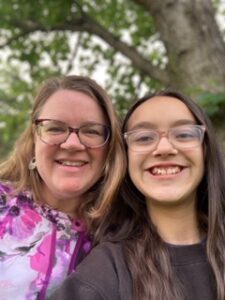 Prior to that, Paula had been a volunteer in the early 2000’s, for about a year. When her and her husband moved to West Liberty, she stopped volunteering. Needless to say, a lot has changed since then! “CMC has always been a great place of support for many in our community who are trying to improve themselves, make a good life, and find support with each other. Coming back many years later, this has not changed and only been enhanced! The biggest most recent change is, of course, to the new building. When my daughter and I started coming to help with the food pantry last fall things were in transition! It is so wonderful to see everything start to take shape. All of the cooler and freezer space available for the pantry is very helpful! Families are able to access more fresh, nutritious foods they can enjoy,” says Paula.
Prior to that, Paula had been a volunteer in the early 2000’s, for about a year. When her and her husband moved to West Liberty, she stopped volunteering. Needless to say, a lot has changed since then! “CMC has always been a great place of support for many in our community who are trying to improve themselves, make a good life, and find support with each other. Coming back many years later, this has not changed and only been enhanced! The biggest most recent change is, of course, to the new building. When my daughter and I started coming to help with the food pantry last fall things were in transition! It is so wonderful to see everything start to take shape. All of the cooler and freezer space available for the pantry is very helpful! Families are able to access more fresh, nutritious foods they can enjoy,” says Paula.
